Activities Posts on Crowch
From April 10 to 13, 2025, the legendary Augusta National Golf Club in Georgia will once again become the center of the golfing world as it hosts The Masters. For fans and players alike, this tournament is more than a sporting competition. It is a celebration of tradition, prestige, and drama — an event that captivates millions of people across the globe every spring.
Who Will Be the Next Hero?
Every edition of The Masters writes its own story. Rising stars arrive eager to prove they belong among the game’s elite, driven by the dream of slipping on the famous green jacket. Veterans return, determined to relive past glory and add another chapter to their careers. The question for 2025 is whether a new generation will rise to the challenge and dethrone the legends, or if experience will once again prevail.
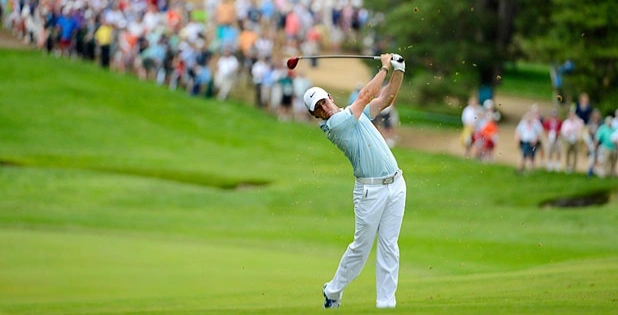
The Masters has always been a stage for breakthrough moments: Jack Nicklaus’s historic wins, Tiger Woods’s dominant performances, and more recently, young champions carving their names into history. This balance of past greatness and future promise gives the tournament its unique intrigue.
Augusta: The Ultimate Test
Augusta National is as breathtaking as it is unforgiving. Known for its stunning azaleas, perfectly manicured fairways, and iconic holes, the course is a true test of skill and composure. The lightning-fast greens demand precision, while the infamous Amen Corner — holes 11, 12, and 13 — has decided countless tournaments with its combination of beauty and danger.
The Masters is never won by power alone. Mental toughness, patience, and the ability to perform under pressure are just as important. A single miscalculation can undo an entire round, while one moment of brilliance can secure eternal glory.
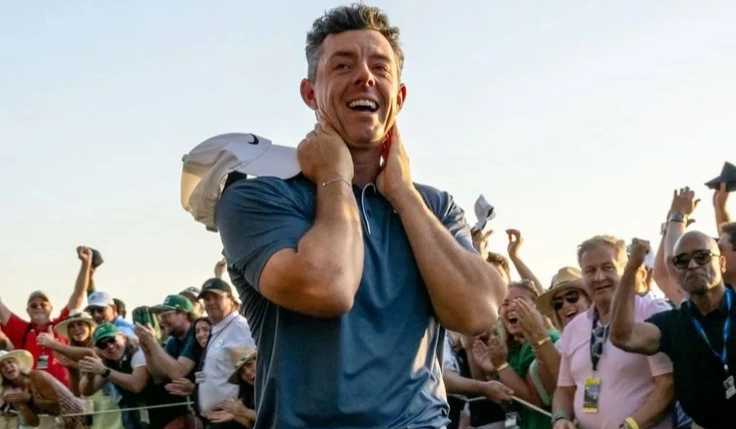
A Global Spectacle
What sets The Masters apart is that it transcends the sport itself. Broadcast in more than 200 countries, it draws millions of viewers, including many who may not follow golf year-round. For fans, it signals the arrival of spring and offers a chance to witness history. For players, it is the dream stage. For the sport itself, it is one of the greatest traditions, preserved and celebrated year after year.
The traditions of Augusta — the ceremonial green jacket presentation, the Champions Dinner, and the Par 3 Contest — remind us that The Masters is as much about heritage as it is about competition. These rituals create a sense of timelessness, making the tournament feel like a living piece of history.
Looking Toward 2025
As the 2025 Masters approaches, the excitement builds. Will an established champion reaffirm their dominance? Will a new name emerge to shock the world? The only certainty is that Augusta will deliver drama, beauty, and unforgettable stories, just as it has for nearly a century.
✨ The Masters 2025 is not just a tournament. It is a moment of truth, where legends are born and every shot carries the potential to become part of golfing history.
In 2025, the NBA and NFL are at the height of their transformation. Once symbols of American culture, today they are global brands shaping new sports traditions across the world. Their games are played on multiple continents, attracting millions of fans and redefining what “American sports” mean.
🏀 NBA: A Journey of Globalization
The NBA began its international journey in the late 20th century with exhibition games in Europe and Asia. By 2025, basketball has become more than a sport — it is part of global pop culture, tied to music, fashion, and lifestyle.
Games in Abu Dhabi and exhibitions in Australia highlight the league’s intent to dominate new markets. Plans for matches in Berlin, Paris, London, and Manchester show its long-term vision for Europe. Meanwhile, the NBA continues to invest in youth programs and academies abroad, ensuring a pipeline of players and fans for future generations.
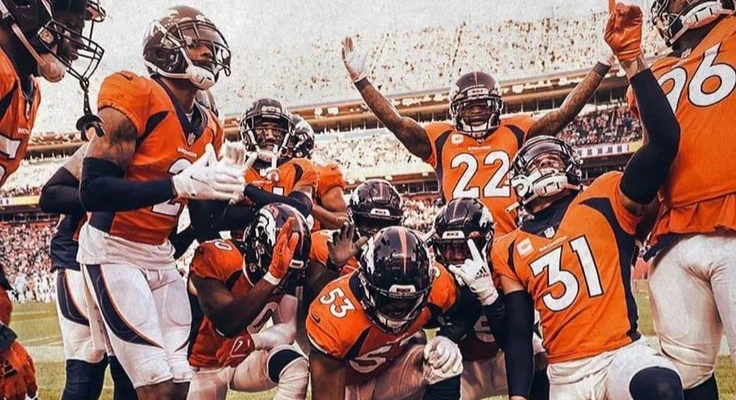
🏈 NFL: From Local to International
American football was once confined to U.S. soil. But by 2025, the NFL has broken barriers, scheduling seven regular-season games across five countries — including Spain, Ireland, and Brazil. This marks a historic expansion of the sport’s global reach.
The Global Markets Program gives all 32 NFL teams rights to build their fan bases overseas. Teams now have the tools to connect with international audiences — through academies, marketing campaigns, merchandise, and local fan clubs.
👥 Cultural Influence
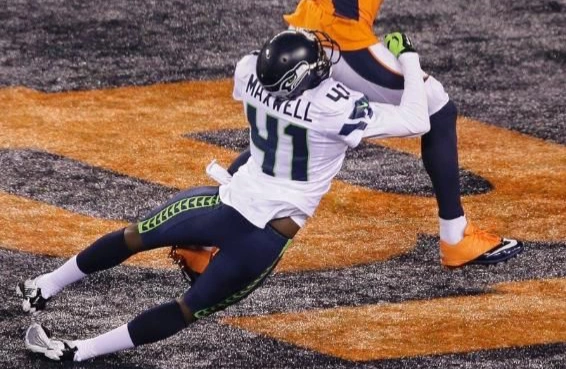
Both the NBA and NFL understand that sport is more than the game itself. International matches have become cultural festivals with concerts, shows, and fan events. In London and Munich, NFL games are not just competitions but citywide celebrations. In Abu Dhabi, NBA matches are paired with music and street fashion, making basketball part of urban culture.
📺 Media and Digital Reach
Technology drives globalization. Millions watch NBA and NFL games through streaming platforms. The leagues are investing heavily in digital engagement, augmented reality, and exclusive online content, creating new ways for fans to connect with their favorite teams and players.
✨ The Future
By 2030, we may see full NBA and NFL seasons played outside the U.S., and perhaps even international franchises. More importantly, both leagues have proven that sport is a universal language that unites cultures, erases borders, and builds a shared global identity.
Conclusion: In 2025, the NBA and NFL are no longer just American leagues. They are global sports empires, uniting millions of people and shaping the future of athletic entertainment.
In 2025, Riyadh became the global capital of esports by hosting the Esports World Cup 2025, the largest tournament in the industry’s history. With a record-breaking prize pool of over $70 million, the event proved that esports is no longer a niche — it is now a core part of the global sports economy.
💰 Record-Breaking Prize Pool
The scale was unprecedented: 200 teams, 2,000 players, and 25 game titles. The highlight was the Club Championship, with $27 million dedicated to organizations rather than individuals. This structure echoed traditional sports leagues, strengthening the foundation for esports clubs.
📈 Economic Impact
EWC 2025 was both a sporting and economic milestone. Thousands of visitors came to Riyadh, while millions tuned in online. The tournament attracted significant investments, marketing partnerships, and created new revenue models — from streaming and advertising to merchandise and digital products.
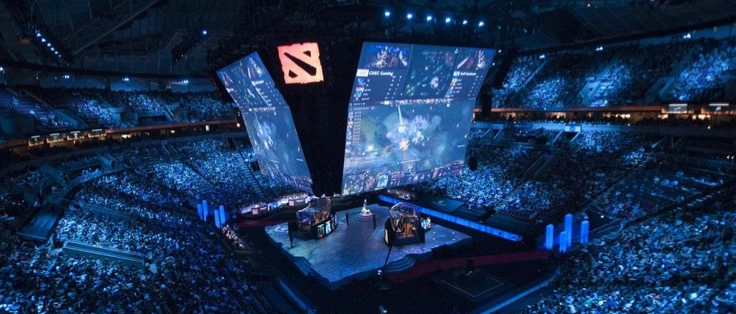
🌟 Global Reach and Audiences
Esports has become truly global. By including a wide variety of genres — from shooters and strategy to sports simulations and chess — EWC 2025 appealed to a broad demographic. Esports is now a universal platform where everyone can find their favorite form of competition.
👥 Stars and Media Power
Cristiano Ronaldo and Magnus Carlsen served as iconic ambassadors, boosting the event’s visibility. Broadcasts broke viewership records, while fan culture — cosplay, fan art, and digital communities — turned the tournament into a cultural phenomenon.
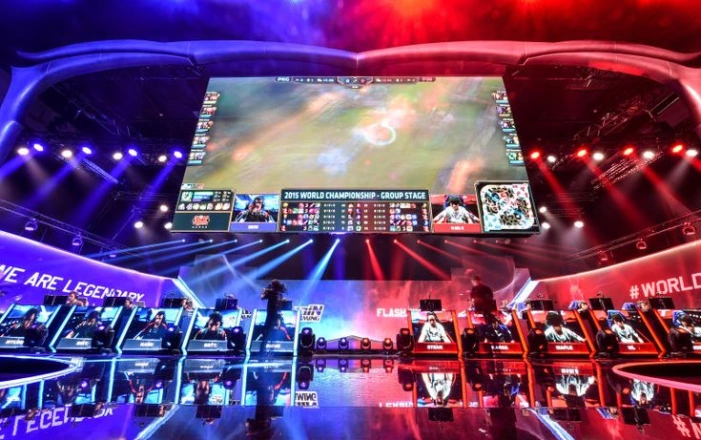
🌐 A Strategy for the Future
EWC 2025 was also a cornerstone of Saudi Arabia’s Vision 2030 strategy. By investing in gaming and esports, the nation positioned itself as a hub for culture and innovation. With future initiatives like the Nations Cup and Olympic Esports Games, the industry’s growth looks unstoppable.
✨ Conclusion
The Esports World Cup 2025 proved that esports is more than competition — it is the economy of the future. The event showcased the industry’s readiness for sustainable growth, global integration, and a lasting sporting legacy.
The Esports World Cup 2025 in Riyadh was not only the biggest tournament in esports history but also a celebration that proved games can unite people just like traditional sports. From July 8 to August 24, Saudi Arabia’s capital became the heart of global esports culture.
🌍 A Festival of Esports
More than 2,000 players and 200 teams competed across 25 disciplines. From classics like Dota 2, League of Legends, and CS:GO to newcomers like Valorant, CrossFire, and even Chess, the event turned into a true festival where every fan could find their game.
👥 Fan Experience
Thousands of fans traveled to Riyadh to attend live matches, while millions tuned in online. The arenas buzzed with energy: light shows, fan zones, meet-and-greets with players, and cosplay made the championship feel more like a celebration than just a competition.
🌟 Icons and Ambassadors
The tournament gained even more prestige with global stars. Cristiano Ronaldo served as the face of the event, symbolizing the bridge between traditional and digital sports. Chess grandmaster Magnus Carlsen drew worldwide attention with his victory, proving that intellectual games are also part of esports’ future.
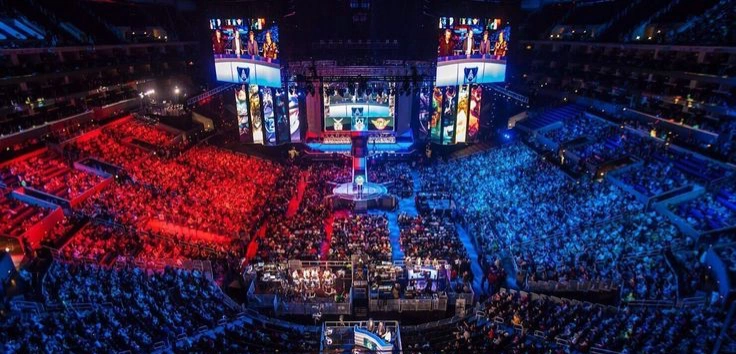
🏆 Competition and Records
With a record-breaking $70 million prize pool, EWC 2025 became the most prestigious tournament in esports history. The battles were fierce, with every match filled with emotion and strategy. The Club Championship was especially thrilling, as organizations competed for collective dominance across multiple games.
🌐 Global Significance
EWC 2025 was part of Saudi Arabia’s Vision 2030 strategy, positioning the country as a global hub for sports and entertainment. The event demonstrated that esports is not a niche hobby anymore but a worldwide movement with millions of fans and immense commercial potential.
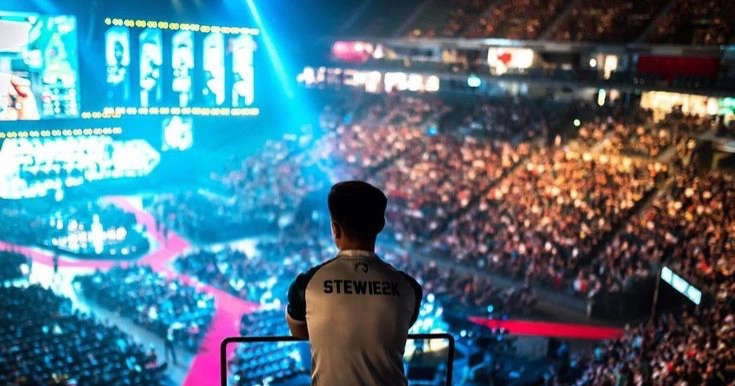
✨ Conclusion
The Esports World Cup 2025 symbolized a new era. It showed that esports is more than just games — it is a universal language that unites generations, cultures, and nations.
When Singapore was awarded the right to host the 2025 World Aquatics Championships, the organizers faced a challenge: to build a venue that would meet international standards while also becoming a symbol of the city. This is how the World Aquatics Championships Arena was born — a temporary structure that exceeded all expectations.
🌊 An Arena Shaped by Water
Located at the heart of the Singapore Sports Hub, the arena was designed as a tribute to the beauty and power of water. Its architecture resembled waves in motion: lightweight lines, transparent panels, and dynamic lighting created an atmosphere of flow and energy. It was not just a venue but a work of architectural art.
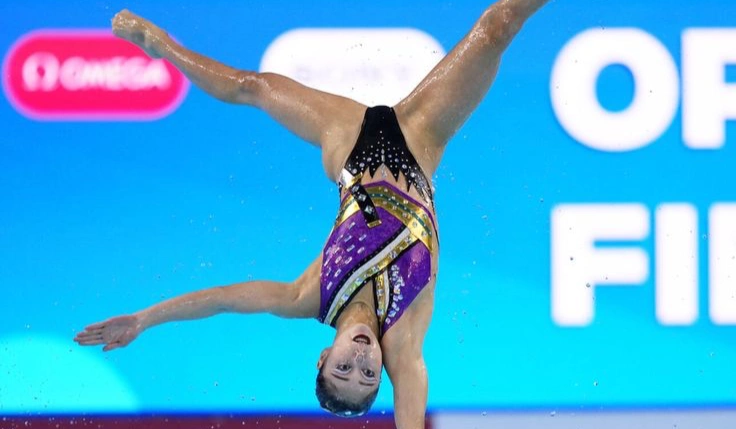
Перезагрузить файл
👥 A Spectator-Centered Experience
Organizers focused on delivering a world-class experience. Spacious stands, fan zones, interactive screens, and relaxation areas turned attending competitions into a celebration. Over half a million fans visited, and the arena gave each of them a sense of being part of a global sporting moment.
Its temporary nature did not diminish its importance. Instead, it demonstrated that modern technology makes it possible to create large-scale, eco-friendly venues designed for major events.
🌍 Contribution to Sport
The World Aquatics Championships Arena became a stage for new records and unforgettable performances. Thrilling swimming races, artistic swimming showcases, and dramatic team events all unfolded within its walls. The energy of the arena inspired athletes to push their limits and spectators to experience the joy of sport.
For Singapore, the arena served as both a calling card and a testament to the nation’s ability to host top-tier international events, attracting millions of viewers around the world.
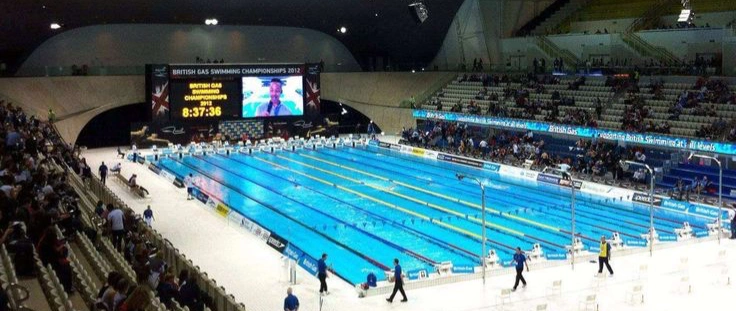
⚡ Technology and Sustainability
The arena embodied sustainable design. Its materials are reusable, its systems energy-efficient, and its carbon footprint minimal. After the championships, many components will be repurposed in other sports and cultural facilities.
Inside, technology played a major role: multi-angle broadcasts, augmented reality features for fans, and synchronized light shows elevated the championships into one of the most spectacular aquatic events ever staged.
✨ Conclusion
The World Aquatics Championships Arena proved that sport is not just about competition but about creating experiences that unite people. Though temporary, the arena left a lasting mark on Singapore’s history and on the global sporting stage, symbolizing innovation, unity, and inspiration.
Every year on November 19, the world observes International Men’s Day. It is an occasion to reflect on men’s contributions to families, workplaces, culture, and society. This holiday is not about competition between genders, but about recognizing the importance of men’s role and raising awareness of the challenges they face today.
🌍 The symbol of the day
The founder of International Men’s Day, Dr. Jerome Teelucksingh from Trinidad and Tobago, dedicated the date to his father’s memory. His idea resonated across the globe, because throughout history, men have served as pillars of support, role models, and sources of inspiration.
💡 Modern values
Today, the focus is not just on physical strength but also on qualities that define true character: honesty, kindness, responsibility, and the ability to care. International Men’s Day helps break down stereotypes and encourages healthier perspectives on masculinity.

👨👩👦 Fatherhood and family
Fatherhood holds a special place in the celebration. Men are increasingly involved in raising their children, setting examples of caring, engaged, and supportive fathers. This shift transforms social expectations and creates a more balanced future.
🩺 Self-care and well-being
Many men neglect their health and emotional well-being. International Men’s Day serves as a reminder that caring for oneself is not weakness but strength. Campaigns and events highlight the importance of disease prevention, mental health, and open dialogue.
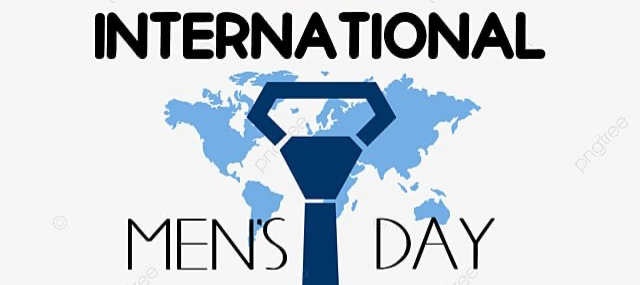
🌟 Gratitude and recognition
This day is also an opportunity to say “thank you” to the fathers, brothers, friends, and colleagues who make our lives brighter and safer.
✨ International Men’s Day is not just a celebration, but a step toward balance and respect — a world where everyone can show their best qualities.
n today’s fast-paced world, we are constantly rushing — work, obligations, news, meetings. Sometimes we forget to stop and reflect on what we are grateful for. That is why Thanksgiving, celebrated annually in the United States and Canada, remains such a special holiday — a day when millions of people consciously say the simple words of gratitude.
🌽 Where did it begin?
The story of Thanksgiving goes back to the 17th century, when the first settlers, after surviving a harsh winter, celebrated their harvest with a feast shared with Native Americans. That meal became a symbol of friendship, help, and hope. Over time, it grew into a cultural tradition uniting an entire nation.
🦃 At the table
The centerpiece of the holiday is the family dinner. Turkey, corn, mashed potatoes, cranberry sauce, and pumpkin pie fill the table. But the true value is not the food — it’s the people gathered around it. Families come together to share stories, laughter, and warmth, creating memories that last a lifetime.

❤️ The art of gratitude
Thanksgiving teaches us that gratitude is more than a polite word — it is a source of inner strength. It helps us see light in hard times, strengthens our relationships, and makes us kinder. Many families take turns sharing what they are thankful for, turning the dinner into a heartfelt ritual.
🙌 Helping others
Charity has also become part of the tradition. Across America, volunteers host free dinners for the homeless, collect donations, and deliver food to those in need. Thanksgiving reminds us that gratitude also means generosity.

🎉 Modern touches
Today, the holiday is marked by parades, football games, and the start of the Christmas shopping season. Yet, at its core, Thanksgiving remains what it has always been — a celebration of family, kindness, and thankfulness.
✨ On Thanksgiving, we practice one of life’s simplest yet most powerful arts — saying “thank you” for what we have and for those who stand beside us.
Georgia is a country with a rich culture where music and singing have always played a central role. It’s no surprise that the nation’s participation in Eurovision always sparks pride and excitement. In 2025, Georgia once again stepped onto the Eurovision stage, represented by the charismatic singer Mariam Shengelia with her powerful ballad “Freedom.”
🎤 Who is Mariam Shengelia?
Mariam is one of those artists whose journey is truly inspiring. Without formal music education and without the backing of major producers, she has built her career through persistence, raw talent, and a deep love for music. Stories like hers often resonate strongly with Eurovision audiences, as the contest has always cherished performers who bring authenticity and real emotions to the stage.
✨ The song “Freedom”

Composed by Keti Gabissiani with lyrics by Buka Kartozia, this track was chosen for a reason. “Freedom” is more than just a ballad—it is an anthem of inner strength and national pride. Mariam explained in interviews that every line is about her homeland, about belonging, and about unconditional love for her people.
On the stage in Basel, Mariam delivered a dramatic performance. With striking visuals, symbolic gestures, and her powerful voice, the act created an atmosphere where deeply personal emotions transformed into a universal message.
📊 Eurovision result
Georgia performed in the second semifinal on May 15, 2025, appearing 10th in the lineup. Unfortunately, the country did not qualify for the Grand Final, finishing 15th out of 16 with 28 points. Despite the result, the performance sparked lively discussions among fans and media. Many praised Mariam’s emotional delivery, the song’s meaningful lyrics, and her captivating presence.
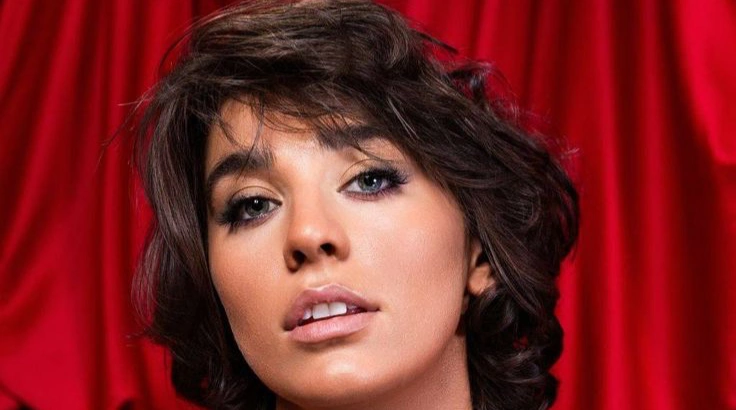
⚡ The debates around Mariam
Mariam has not shied away from political themes, and her statements, along with appearances at concerts backed by different political sides, sparked controversy. This, however, made her image even more widely discussed. Eurovision has always been more than music—it’s often a cultural and sometimes political statement, too.
📜 Georgia’s Eurovision journey
Georgia debuted at Eurovision in 2007. Since then, the country has participated 17 times and reached the final on 8 occasions. Its best results came in 2010 and 2011, when Georgia placed 9th. The nation has yet to claim the Eurovision trophy.
However, in Junior Eurovision, Georgia is a powerhouse. It has won the contest four times, most recently in 2024. Moreover, Georgia will host Junior Eurovision in December 2025, most likely in Tbilisi—a moment of pride and opportunity for the country.
🌍 Why it matters
Even though Georgia didn’t qualify for the final this year, Mariam Shengelia’s performance carried deep symbolic weight. She showed that Georgia continues to stand strong, expressing values like freedom, love, and belonging on the international stage.
Eurovision isn’t only about scores—it’s about cultural dialogue and sharing stories. Every performance on that stage is already a victory.
Georgia is a country of vibrant traditions, rich culture, and unforgettable celebrations. Throughout history, it has hosted events that unite locals and visitors alike, combining centuries-old customs with modern spectacles.
Famous Past Events Tbilisi International Film Festival – Showcasing films from Georgia and around the world, attracting cinephiles since 2000.
Rtveli Harvest Festival – A centuries-old grape harvest celebration in Kakheti, with wine-making, feasts, and music.Tbilisi Jazz Festival – International and local jazz artists gather each year for lively performances.Georgian National Dance Festivals – Highlighting traditional polyphonic music and folk dance across the country.Upcoming and Recurring Events
Art-Gene Festival – Celebrates Georgian folklore, crafts, and traditional music every summer.Batumi Black Sea Jazz Festival – Combines stunning coastal views with world-class music performances.
Tbilisoba – Annual city festival in Tbilisi, celebrating local culture, food, and crafts.
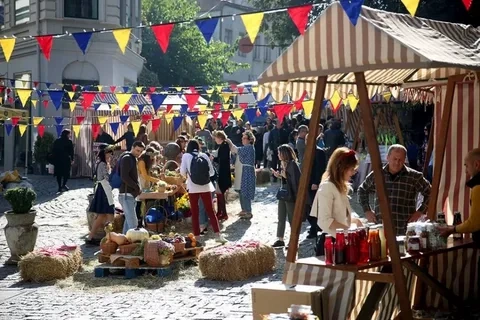
Junior Eurovision Song Contest 2025 – On December 13, Tbilisi will host this international event, bringing young performers from across Europe and vibrant entertainment to the city (junioreurovision.tv).ConclusionGeorgia’s events, from historic harvests to global music stages, showcase the country’s unique blend of tradition and modernity. Whether attending a centuries-old festival or an international contest, visitors experience the heart and soul of Georgian culture. Votes: https://crowch.com/vote/2895, https://crowch.com/vote/2919/statistic/
https://madloba.info/en/blog/vacation-in-georgia/osenniy-tbilisi/
Black Friday is one of the biggest events in the world of retail. It takes place the day after Thanksgiving in the United States and marks the beginning of the Christmas shopping season. Today, Black Friday has become a global phenomenon, spreading far beyond America’s borders.
The history of the term
The phrase “Black Friday” first appeared in the mid-20th century. Originally, it was used in Philadelphia to describe the heavy traffic and chaos on the streets after Thanksgiving, when crowds rushed to shop. Over time, the term took on a new meaning: on this day, many stores moved from being “in the red” (operating at a loss) to being “in the black” (turning a profit). Thus, Black Friday became a symbol of massive sales and economic gain.
Traditions and features

Black Friday is associated with huge discounts and early store openings. Many retailers launch sales at midnight or in the early morning, while eager shoppers line up hours or even days in advance. Sometimes, the frenzy leads to humorous or even chaotic situations, with people competing for limited quantities of popular items.
With the rise of the internet, Black Friday expanded beyond physical stores. Online platforms like Amazon have made the event accessible to millions of people around the world. For shoppers, it is an opportunity to buy electronics, clothing, and gifts at reduced prices; for retailers, it is a powerful way to attract customers and boost profits.
Global expansion
Although Black Friday originated in the United States, it is now celebrated in many countries. Across Europe, Latin America, Asia, and even Russia, retailers have adopted large-scale sales inspired by the American tradition. This makes Black Friday not only an economic event but also a cultural symbol of globalization.

Impact on economy and society
The economic impact of Black Friday is enormous. In the United States, sales on this day often reach tens of billions of dollars. However, the holiday has its critics: some see it as a symbol of excessive consumption, where people buy not out of need but because of discounts.
On the other hand, Black Friday remains an important driver for businesses and workers alike, from logistics companies to delivery services. For small businesses, it is also a chance to gain visibility in a highly competitive market.
Conclusion
Black Friday is more than just a day of discounts. It reflects the modern world: a combination of consumer culture, marketing, and global economics. For some, it is a holiday of bargains; for others, a reason to reflect on the value of material goods and consumer habits. One thing is certain: Black Friday has firmly established itself in the calendar of global events and continues to shape the rhythm of commerce in the 21st century.